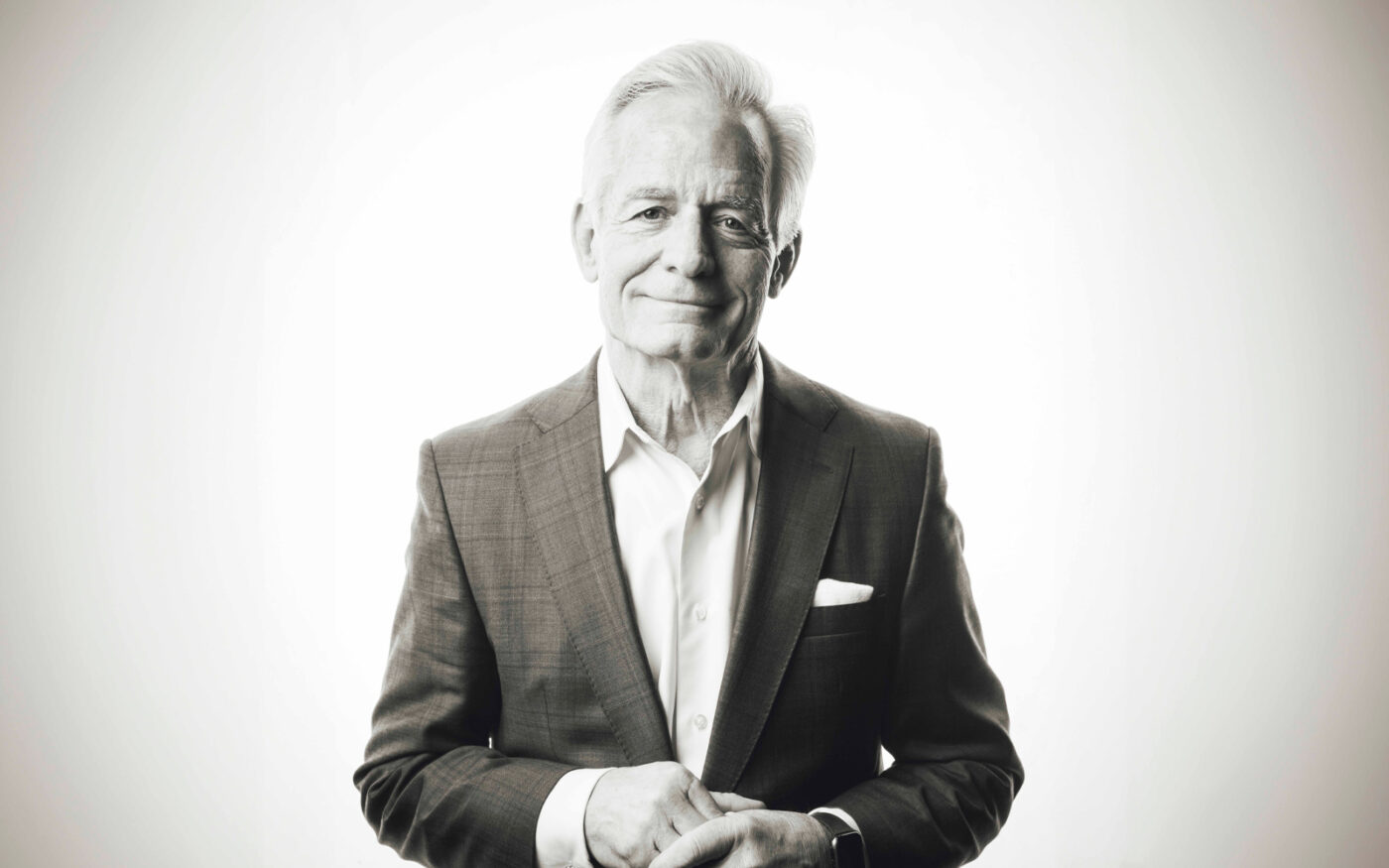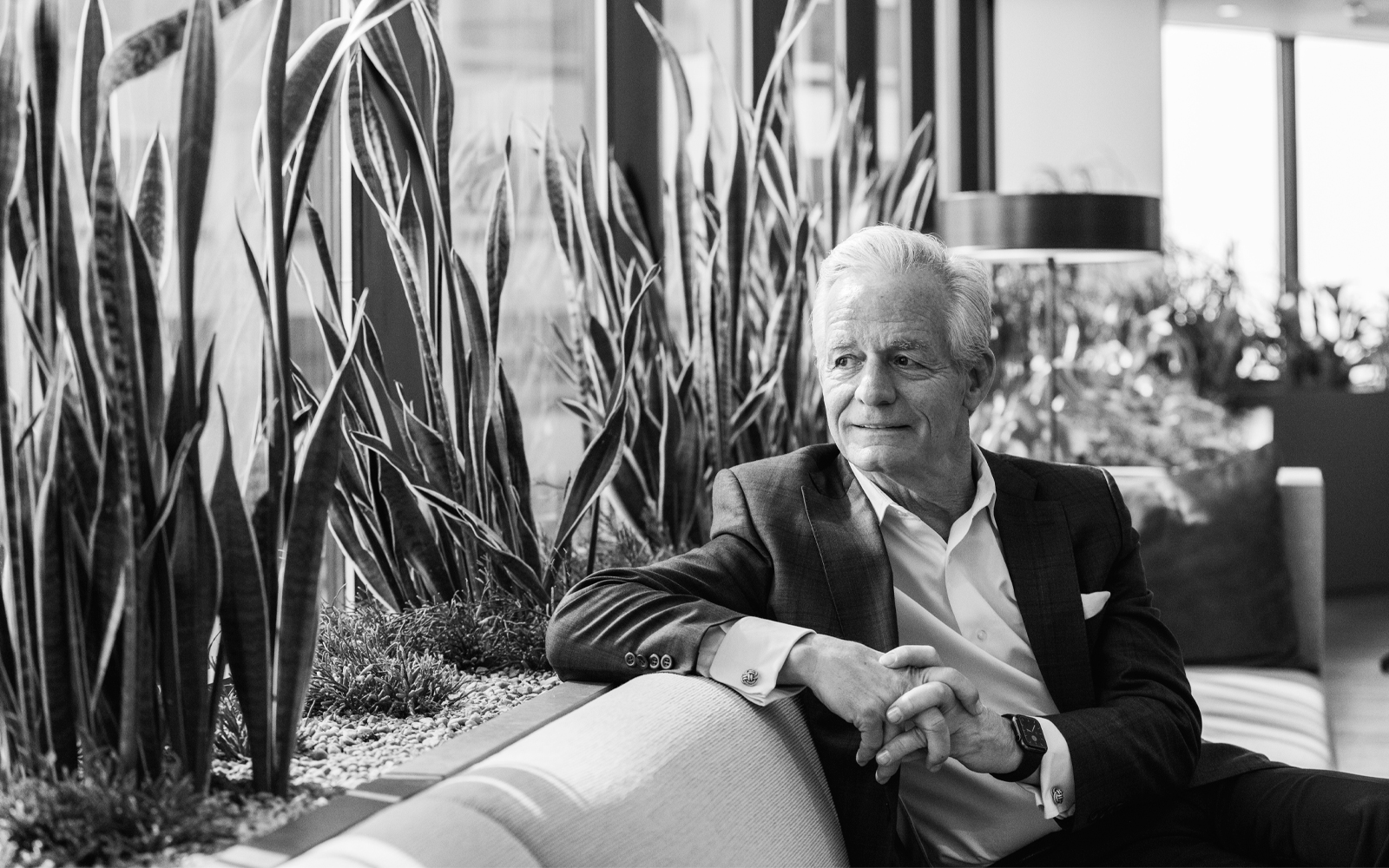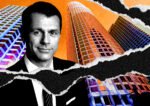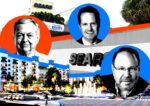The Closing: Lew Horne
Los Angeles’s CBRE head on getting into the business, his friendship with Rick Caruso and the transfer tax

Lew Horne thought he was going to run a pet store business. Then, he thought he’d sell computerized systems to wholesale grocers. Neither panned out.
Instead, Horne runs CBRE’s operations across Los Angeles, Orange County and the Inland Empire, leading advisory services, property and project management and capital markets teams. He is a CBRE lifer, having joined the firm, one of the largest commercial real estate companies in the world and one of the most prominent in Southern California, as an industrial broker in the San Fernando Valley in 1984.
Sitting in a new CBRE office in a high-rise overlooking Century City, Horne sees his role as more than advising real estate clients and managing brokers. He is trying to preserve the future.
Asked about some of the issues facing developers in Los Angeles — homelessness, perceptions of crime and safety, bureaucratic red tape — Horne stiffened, his voice stern.
“Let’s get some of these barriers out of the way,” he said. “Let’s start taking a look at what we need to do to regain the trust of the development community. Let’s not restrict them on what to build.”
Horne has appointed himself as a mediator between the real estate industry and the city of Los Angeles, inviting Mayor Karen Bass and former police chief Michel Moore to speak to CBRE’s agents and clients.
He’s also not afraid to call out what he thinks is bad policy — like Measure ULA.
“I think it’s just outrageous,” Horne said about the city’s transfer taxes on all commercial and residential sales over $5 million. “That’s got to be repealed.”
TRD sat down with Horne to chat about the tax issue, L.A.’s office market, his family — and his best friend, shopping center king and former mayoral candidate Rick Caruso.
This interview has been edited and condensed for clarity. To listen to an extended version of this interview, head to TRD’s podcast Deconstruct.
Born: May 15, 1958
Hometown: Santa Maria, California
Lives: Pasadena, California
Family: Wife, four children
You were born on a missile base in Santa Maria, California — your parents were in the military?
My father was an Air Force officer, a pilot actually. We lived in Hawaii, and we spent time in Virginia, Northern California and Southern California. My parents actually met in the territory of Alaska. They were married there, and we would go back up to Alaska to visit that base.
When did you first settle in Los Angeles?
I was going to college in Sacramento and ultimately wanted to start a small business down here. The University of Southern California was starting an undergraduate entrepreneurial program. That really caught my eye. I drove down here in my little orange Volkswagen and interviewed for the program and got in.
What was the business you wanted to start?
It was a retail pet business. I was up in Northern California running a small company, but my dad really wanted me to finish college. I had no intention — I was going to drop out of college at that point and go into this pet business. My dad convinced me that it would be much wiser to finish my degree, and maybe start something new.
Then I came down to Southern California. My intention was really to start pitching down here, and ultimately I wound up increasing my aspirations. My first job was with IBM. So it couldn’t have been further from the pet business.

What were you doing at IBM?
I was selling accounting and payroll systems and hardware and software to manufacturing and distribution companies in Downtown Los Angeles. One of the jobs that I had was selling to the produce market. I’d get up at 4 in the morning when they were all trading. I would try to talk these owners into computerizing their inventories.
That doesn’t sound all that different from trying to persuade clients to lease real estate.
One of my friends at IBM, Bill Chillingworth, his father was a developer and he had left IBM to go to Coldwell Banker out in the San Fernando Valley. He called me one day and said, “Lew, you really need to do this. You’re dealing with clients and it’s much more entrepreneurial. And there’s greater upside.” I interviewed with Coldwell Banker and then became a broker out in the San Fernando Valley for the first 12 or 13 years of my career.
What’s one deal you did when you were starting out that has stuck with you over the years?
I remember once finding a large parcel, like 300 acres, in Santa Clarita, which was a brand-new city. We thought it would be a great headquarters site. The city manager agreed, and they acquired the property. I felt like I was playing some role in changing the landscape of a community. It was incredibly rewarding to see buildings and warehousing and office or residential get developed from an idea that we had come up with.
How did you meet your wife?
I met my wife at USC. In those days, there was something called a pinning, a pre-engagement kind of a thing. She was in a sorority, and my brother-in-law today, Don Gorsch, was in my fraternity and he was getting pinned. All of my fraternity brothers went to her sorority, out on the lawn, and I spotted Don’s girlfriend’s sister, Lisa. I was starstruck, and I said, “I’d really like to meet her.” He set us up on a date.
Maybe a year later, we were married and had a double wedding. My wife is one of seven girls; she was number four. Laurie, her sister, was number three. She got married [to Don] 15 minutes before we did.
And you had four children.
My eldest daughter, Laura Stumm, works for Newmark, and she’s done exceptionally well. My second daughter works for Rick Caruso. She does some of his high-street retail, and also his pop-up strategy. Rick is my closest friend and is somebody that we’ve all grown up with. And my youngest daughter is an aspiring attorney and graduated from the Rick J. Caruso School of Law at Pepperdine, which I’m really proud of.
A little over 20 years ago, my son tragically died. It was a pretty big change in our family and something that we all got through. But [we were] very, very proud of him. He was 15 and a half years old, and it was just a very tragic event.
I know Rick Caruso was there for you during that time. And you still call him your closest friend.
Rick and I have been dear friends for almost 50 years. Rick is somebody that has been with me and with my family through thick and thin on multiple occasions, and just somebody that I really hold dear. I consider him my best friend. He was one of the first people I met at USC. He motivated me. He’s somebody that I’ve always really cared for deeply, and respected. Immensely.
Let’s talk about the city of Los Angeles, which is struggling with many things right now. Homelessness, perceptions of crime, office vacancy.
Well, that’s a lot. L.A. has got so much going for it. But homelessness, that’s an area where we need more resources and a shift of attitude. Our homeless population constitutes about 0.5 percent of our population. You would think we could figure this out. We need to figure out how to shelter the unsheltered and then obviously match that up with services to help the addicted or the mentally ill.
On a personal level, I had a brother who died in an encampment up in Northern California. So when I’m looking at that homeless unsheltered person, through Skid Row, or just somebody panhandling on the street, that person has a mother, they’ve got a father, they’ve got a brother, they’ve got a sister. And they don’t want to be there.
“We need to just open up the development gates and let the developers develop, particularly in that multifamily space.”
You’ve been vocally against Measure ULA, transfer taxes designed to give the city more revenue to build affordable housing. But the city has collected about a tenth of what it projected.
I think it was misguided and misrepresented. The fact that it was called a mansion tax targeted at a wealthy homeowner selling a $5 million-plus home was just misleading. It just wasn’t truthful. And so today, $150 million is 300 units. And think about how many units that [the transfer taxes have] killed because a developer has redlined Los Angeles.
That’s got to be repealed. It’s already difficult to develop in Los Angeles. So all of a sudden, to put a transfer tax on, which every developer has got to now bake in… There’s a lot of developers that have said, “I give up, it’s hard enough.” I think it’s just outrageous.
About 120,000 building permits were filed across California in 2022, U.S. Census data show. In Florida, which has half California’s population, 212,000 permits were filed. How do you persuade developers to move forward in L.A.?
We do have one of the most creative and innovative development communities in the world. How many cities have two Frank Gehry buildings right across the street from each other? But when you continue to just take the development community for granted, and think that you can continue to tax … Ultimately, [developers] have got to make a reasonable profit.
The entitlement process isn’t a year or two here. In some cases, it can be five years. Let’s repeal ULA, and let’s get some of these barriers out of the way. Let’s go through CEQA [California Environmental Quality Act] reform. Let’s start taking a look at what we need to do to regain the trust of the development community. Let’s not restrict them on what to build. You build any kind of residential right now and it will ultimately cascade down into more inventory, which will create lower pricing.
I think we need to just open up the development gates and let the developers develop, particularly in that multifamily space.
On to the office market. A lot of office landlords are struggling to pay off debt and having a hard time getting new tenants in.
The office market is going through the biggest change certainly that I’ve seen in my career. Couple that with certain market areas where investors or lenders feel that there’s going to be less demand, you’re gonna have more problems. Right now, the biggest driver of office defaults is the inability to renew an existing loan. And in areas where there’s a perception that it’s not safe, or homelessness, you’re going to have a bigger impact.
Like Downtown, where there is that narrative, we’re going through a lot of effort right now to make sure that users, investors are all working off the same sheet of information. We’ve had the mayor involved, speaking to our investors, clients. They’re really speaking to what’s really happening in the marketplace so that we can separate the mythology from the reality.
Do you think we’re getting close to a price reset on office?
There’s no question about it. By the end of 2024, we will have had multiple trades in each one of our submarkets where there will be a reset. It’s also happening in Orange County, where some buildings have traded at $125 or $150 a square foot. That’s a reset.
Given that two of your daughters are in real estate, do you have to stop talking about real estate at the dinner table?
We all love talking about commercial real estate. My youngest daughter probably gets a little tired of that, because she’s our lawyer in the family.
Last question. What’s your favorite restaurant in L.A.?
We spend a lot of time at Amici’s, right off Colorado Boulevard. We also spend a lot of time at Caruso’s in Montecito. And Bourbon Steak. But I’ll go anywhere with my kids and grandkids.




